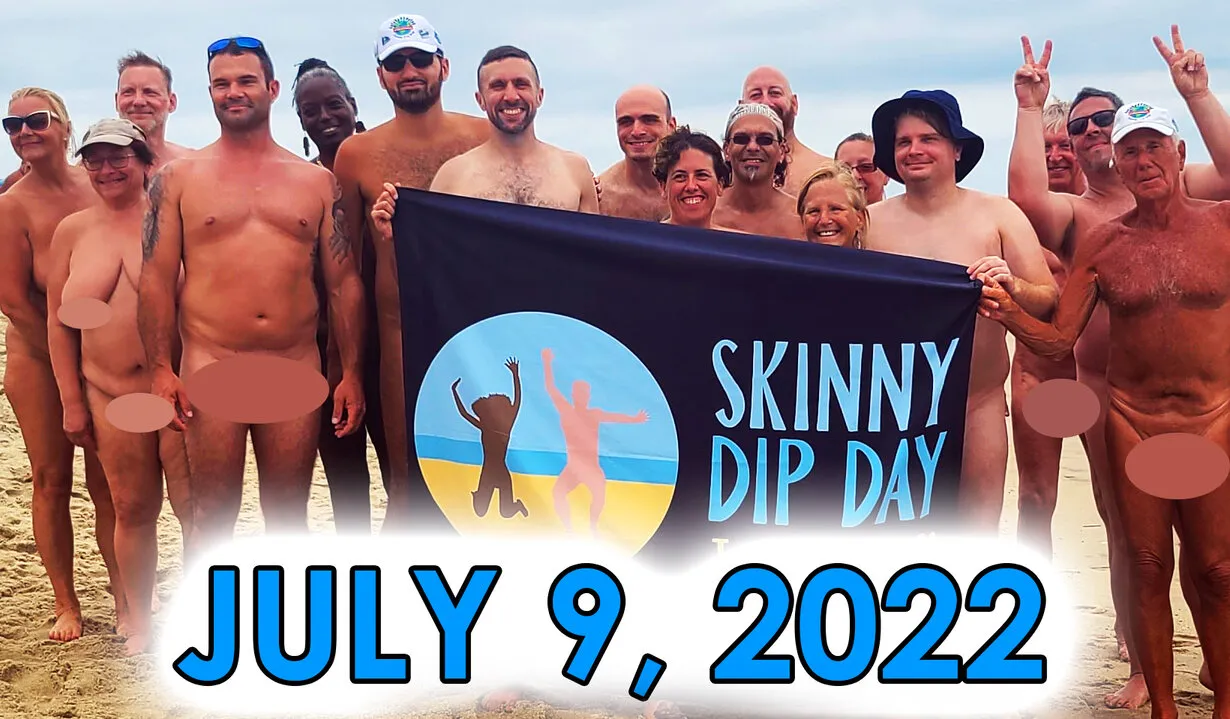July 9, 2022 is International Skinny Dip Day.
Join us (skinnydipday.org) as we
- EXPERIENCE and grow our own body positivity and self/other acceptance.
- CURE women who have had their bodies injured and shamed (via Fistula Foundation).

...is widely regarded as one of the most effective charities in the world.
- Recommended by The Life You Can Save.
- And almost making the Give Well elite rankings?: "We think that Fistula Foundation may be in the range of cost-effectiveness of our current top charities. However, this estimate is highly uncertain for a number of reasons (December 2021)."
...is an established (yet scattered / underutilized) concept:
- The Sydney Skinny raised over $70,000 AUD for their most recent 2019 event.
- Strip and Dip raised €508,000 at their most recent event.
- The BBC reported on this 6th annual skinny dip fundraiser in England.
- The Skinny Dip fundraising concept is similar to Polar Plunge, which is even more established. This one, for example, brought in $2.3 million.
🌊 Dippin’ — On a Mission 🌊
We are growing — and we hope you will ride the wave with us?
2019: $871 raised across 3 locations
2021: $5275 raised across 8 locations (6x increase)
2022: 14 locations (and counting) signed up so far.

QUESTIONS:
- Are publicity stunt style events (which are not explicitly linked to EA; and which are not overly dangerous etc) an effective method at highlighting effective giving, and EA in general?
- Is Fistula Foundation a good "gateway drug" to effective giving, and EA in general?
- pulls at heart strings
- easy to understand quickly
- Fistula Foundation clearly CURES and EMPOWERS specific people for every x amount of money you raise for them. And builds up local health infrastructure.
- In contrast to, for example, GiveWell's first listed charity, Malaria Consortium, which gives chemo drugs to children in order to prevent some of them from dying in the future from a disease not many in the developed world are even familiar with. (I'm sure it's all well and good; however many questions arise from the average non-EA and veteran EA alike.)
3. Will you skinny dip (at an event or on your own) and/or donate to support the project? 🌊 😊 🌊



I have some serious issues with the way the information here is presented which make me think that this is best shared as something other than an EA forum post. My main issues are:
In general the language here together with the fact that the OP is affiliated with this foundation makes me update to take the fistula foundation much less seriously and to avoid donating there in the future. I would suggest for the OP to remove this post or to edit it in a way that is informative rather than pandering (e.g. something like "join me to go skinny-dipping for fistula foundation on X day. While it has a mediocre impact assessment, I like the cause and think skinny dipping would be a good way to support it while also becoming less insecure about our bodies").
Thank you Amber !